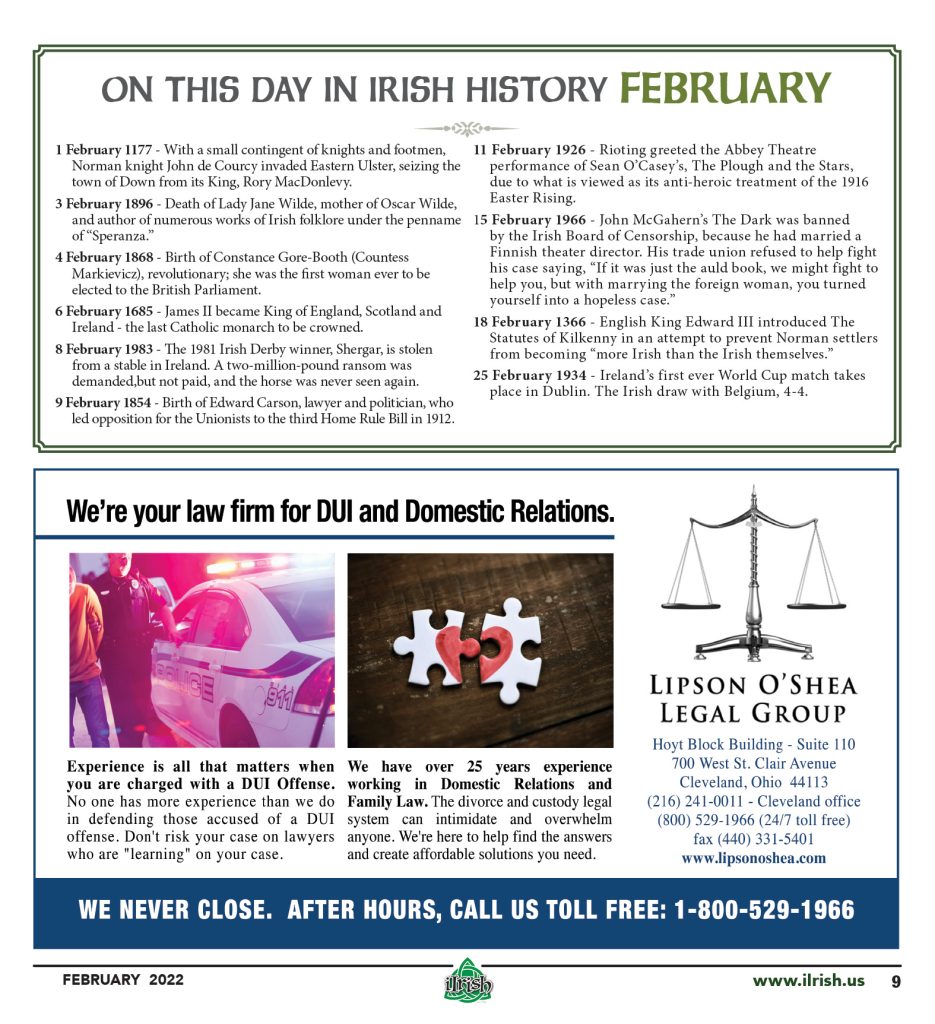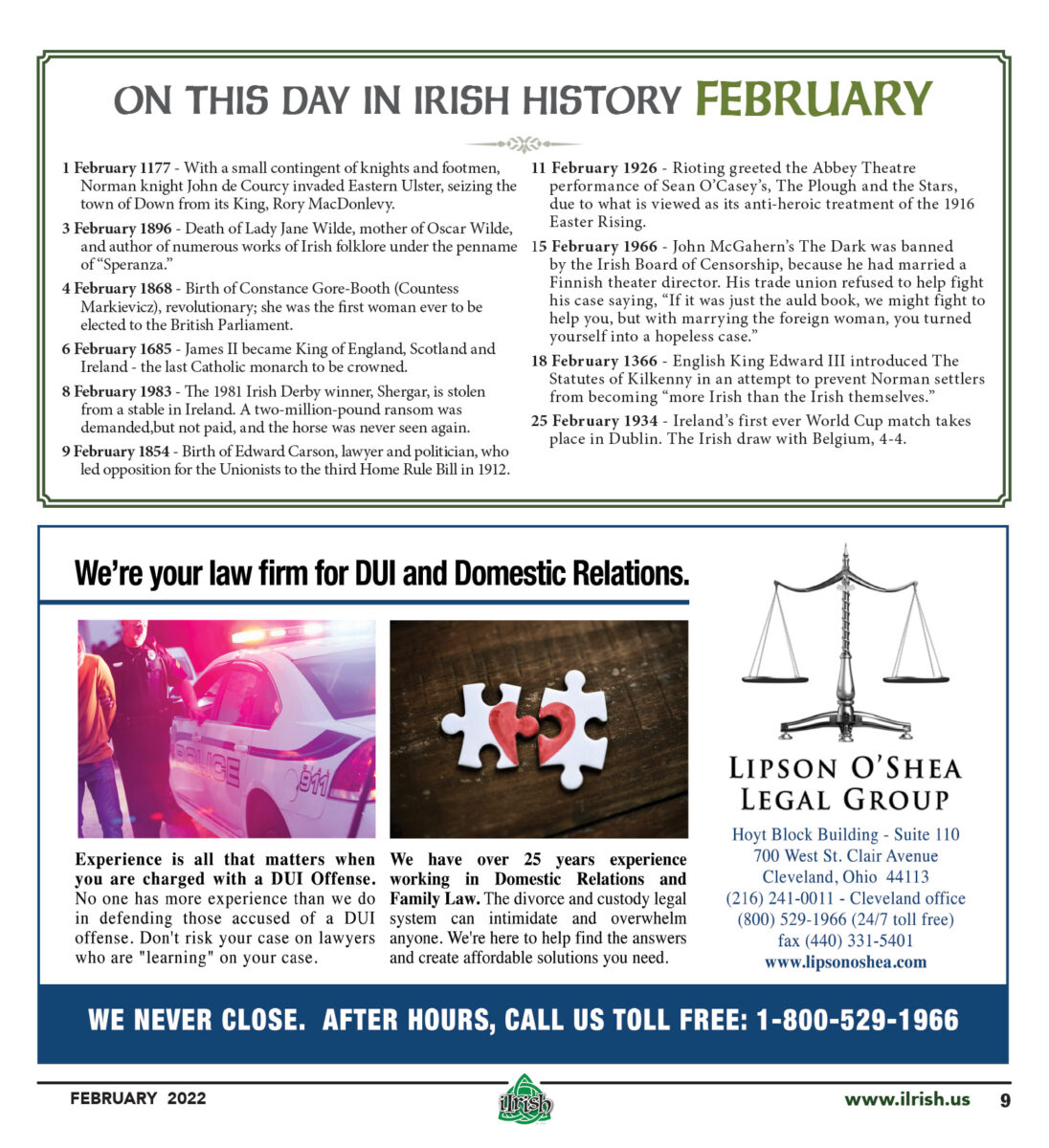
On This Day in Irish History
1 February 1177 – With a small contingent of knights and footmen, Norman knight John de Courcy invaded Eastern Ulster, seizing the town of Down from its King, Rory MacDonlevy.
3 February 1896 – Death of Lady Jane Wilde, mother of Oscar Wilde, and author of numerous works of Irish folklore under the penname of “Speranza.”
4 February 1868 – Birth of Constance Gore-Booth (Countess Markievicz), revolutionary; she was the first woman ever to be elected to the British Parliament.
6 February 1685 – James II became King of England, Scotland and Ireland – the last Catholic monarch to be crowned.
8 February 1983 – The 1981 Irish Derby winner, Shergar, is stolen from a stable in Ireland. A two-million-pound ransom was demanded,but not paid, and the horse was never seen again.
9 February 1854 – Birth of Edward Carson, lawyer and politician, who led opposition for the Unionists to the third Home Rule Bill in 1912.
11 February 1926 – Rioting greeted the Abbey Theatre performance of Sean O’Casey’s, The Plough and the Stars, due to what is viewed as its anti-heroic treatment of the 1916 Easter Rising.
15 February 1966 – John McGahern’s The Dark was banned by the Irish Board of Censorship, because he had married a Finnish theater director. His trade union refused to help fight his case saying, “If it was just the auld book, we might fight to help you, but with marrying the foreign woman, you turned yourself into a hopeless case.”
18 February 1366 – English King Edward III introduced The Statutes of Kilkenny in an attempt to prevent Norman settlers from becoming “more Irish than the Irish themselves.”
25 February 1934 – Ireland’s first ever World Cup match takes place in Dublin. The Irish draw with Belgium, 4-4.


Monthly newsmagazine serving people of Irish descent from Cleveland to Clearwater. We cover the movers, shakers & music makers each and every month.
Since our 2006 inception, iIrish has donated more than $376,000 to local and national charities.
GET UPDATES ON THE SERIOUS & THE SHENANIGANS!